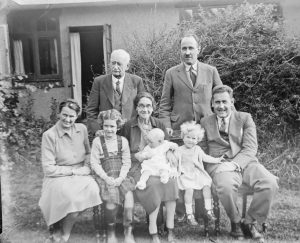“The family has a central role to play in the treatment of any health problem, including substance abuse. Family work has become a strong and continuing theme of many treatment approaches, but family therapy is not used to its greatest capacity in substance abuse treatment. A primary challenge remains the broadening of the substance abuse treatment focus from the individual to the family.”
—Substance Abuse and Mental Health Services Administration, Substance Abuse Treatment and Family Therapy
The value of family involvement in substance abuse treatment cannot be overstated. Support from family members not only increases the likelihood of successful treatment, it can also help improve mental adjustment to addiction-free living, and even prevent relapses.
If the family has the education and support they’ll need along the way, that is.
Substance abuse within a family affects everyone in that family. Each family member develops their own coping mechanisms, ranging from the benign to the dangerous:
- Ignoring the problem
- Staying away from the person
- Enabling the person so that they stay in a good mood/do not lash out
- Trying to control the person’s actions
- Using substances themselves
As a result, family members need to recover too. They need to establish a new family dynamic, learn about the disease of addiction, and receive support for their journey.
Family Education is Key to Successful Recovery
“How do I help my family member?”
It’s an essential question. How do family members know what to do to help support their loved one’s recovery? Not to mention take care of their own health at the same time?
This is why we include family education in our services. It’s important for substance abuse treatment programs to welcome families and provide them with supportive services.

Photo by Annie Spratt on Unsplash.
The research bears this out—industry research shows that behavioral health treatment incorporating a family therapy component has better outcomes than treatment that doesn’t. Fortunately, this is happening more and more in the current treatment landscape.
Educational programs usually include:
- Information about the disease of addiction, its emotional and physical effects, and its consequences
- How addiction can affect the family unit
- The addiction recovery process
- How to find support for yourself
- How to support your loved one
- Ways to rebuild trust in relationships
- Setting healthy boundaries
- Communication methods
Not every program has a family component though. If you’re looking for treatment and are concerned about your significant other, parents, children, or others close to you, ask about the resources each program has available for your family.
- Does the program encourage family involvement with the consent of the participant?
- Is there a family educational component?
- Do you make therapy available for family members?
- Are staff familiar with resources to which they can refer family members?
The answers should factor into determining the right treatment program for your needs.
Family Support for Addiction Recovery
Treatment centers can help family members get involved by making them feel welcome and included. In our case, we provide tours of the treatment facilities, involve them in the new client orientation process, and offer them the chance to participate in educational family group (or one-on-one) counseling sessions.
Education targeted to their individual needs help each family member feel confident in supporting their family member’s recovery. At the same time, they learn how to maintain healthy boundaries and meet their own needs. Staff can also introduce family members to support networks in the community, such as Al-Anon.
Reducing the stress within the family environment will ultimately reduce the likelihood that the children, significant other, and the recovering individual will engage in substance abuse in the future.
Resources on Family Education:
- SAMHSA – Substance Abuse Treatment and Family Therapy: https://www.ncbi.nlm.nih.gov/books/NBK64269/
- Al-Anon Family Groups: https://al-anon.org/
- National Institute on Drug Abuse – Principles of Drug Addiction Treatment: A Research-Based Guide: https://www.drugabuse.gov/publications/principles-drug-addiction-treatment-research-based-guide-third-edition/principles-effective-treatment




